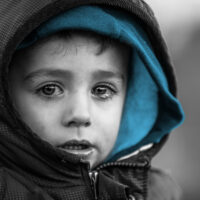This free session is the fifth of ACAMH’s Adverse Childhood Experiences (ACEs) Special Interest Group Monthly seminars. In this session we welcome David Trickey, UK Trauma Council Co-Director and Consultant Clinical Psychologist, to discuss ‘Identifying and responding effectively to Traumatic Bereavement’.
Don’t forget as a charity any surplus made is reinvested back as we work to our vision of ‘Sharing best evidence, improving practice’, and our mission to ‘Improve the mental health and wellbeing of young people aged 0-25’.
About the session
This seminar is intended to help practitioners to more effectively identify and help children and young people presenting with a traumatic bereavement. During a pandemic, however, there may be additional challenges for children and young people that may increase the risk of their bereavement being experienced as traumatic. These may have included the sudden nature of a death, not being able to say goodbye, or constraints on collective mourning in line with normal cultural practices. There is an urgent need for practitioners to be able to recognise traumatic bereavement when it arises and respond with an offer of help that is effective and informed by evidence.
David Trickey states, “When we experience bereavement, we experience the death of someone significant. The subsequent grief is often difficult and may have an impact on our mood and our ability to function for a period of time. Traumatic bereavement arises when this natural grieving process is disrupted, leading to a lasting negative impact on wellbeing and everyday living.
Thinking about traumatic bereavement requires us to consider both trauma and bereavement. Trauma describes the way that some distressing events are so extreme or intense that they overwhelm a person’s ability to cope, resulting in lasting negative impact.
When a child or young person experiences a traumatic bereavement, they face having to cope with both the trauma of the death and the grief that follows their loss. The challenge is the way trauma can disrupt the grieving process, making it even harder to grieve. This has important implications when we seek to offer help and support.
In a typical grief response, a child or young person may experience a broad range of emotions, often intense and at times difficult to manage, but largely within their capacity to cope. By contrast, traumatic bereavement is associated with significant emotional and/or behavioural problems that impact everyday functioning. These difficulties may arise alongside (or contribute to) diagnosable mental health problems such as Post-traumatic stress disorder, anxiety and depression.”
About the Speakers

David Trickey, UK Trauma Council Co-Director and Consultant Clinical Psychologist, uses academic research to help explain why children and young people sometimes struggle to adapt to bereavements; and what the implications are for practice. He has specialised in working with traumatised children, young people and their families since 2000. He continues to focus on direct clinical work, as well as the training and supervision of others working with traumatised children, young people and their families. He presents at international conferences and supervises doctoral research. He acts as an expert witness in civil and criminal cases, particularly where families have experienced family homicide. He was a member of the committee responsible for the 2018 revision of the NICE Guidelines for PTSD. In all of his roles he both contributes to and draws heavily on, the research literature.
He has given an ‘Ask the Expert’ ACAMH presentation on Understanding Trauma. He is delivering an independent training in Trauma Focused Cognitive Behaviour Therapy available to sign up now.
About the ‘ACEs SIG Monthly Seminars’
Everyone is welcome to our ‘ACEs SIG Monthly Seminars’ are free online webinars offering insights into the latest evidence-base around ACEs topic base. They are organised by the ACAMH ACE’s Special Interest Group. This SIG was established by ACAMH with representatives from related organisations, to help integrate and develop research and critical understanding of the complex nature of Adversity in Childhood, formulated as ‘Adverse Childhood Experiences – ACEs’ and the implication for practitioners across services for children and young people. The ACEs SIG is free to join, do please consider joining.

